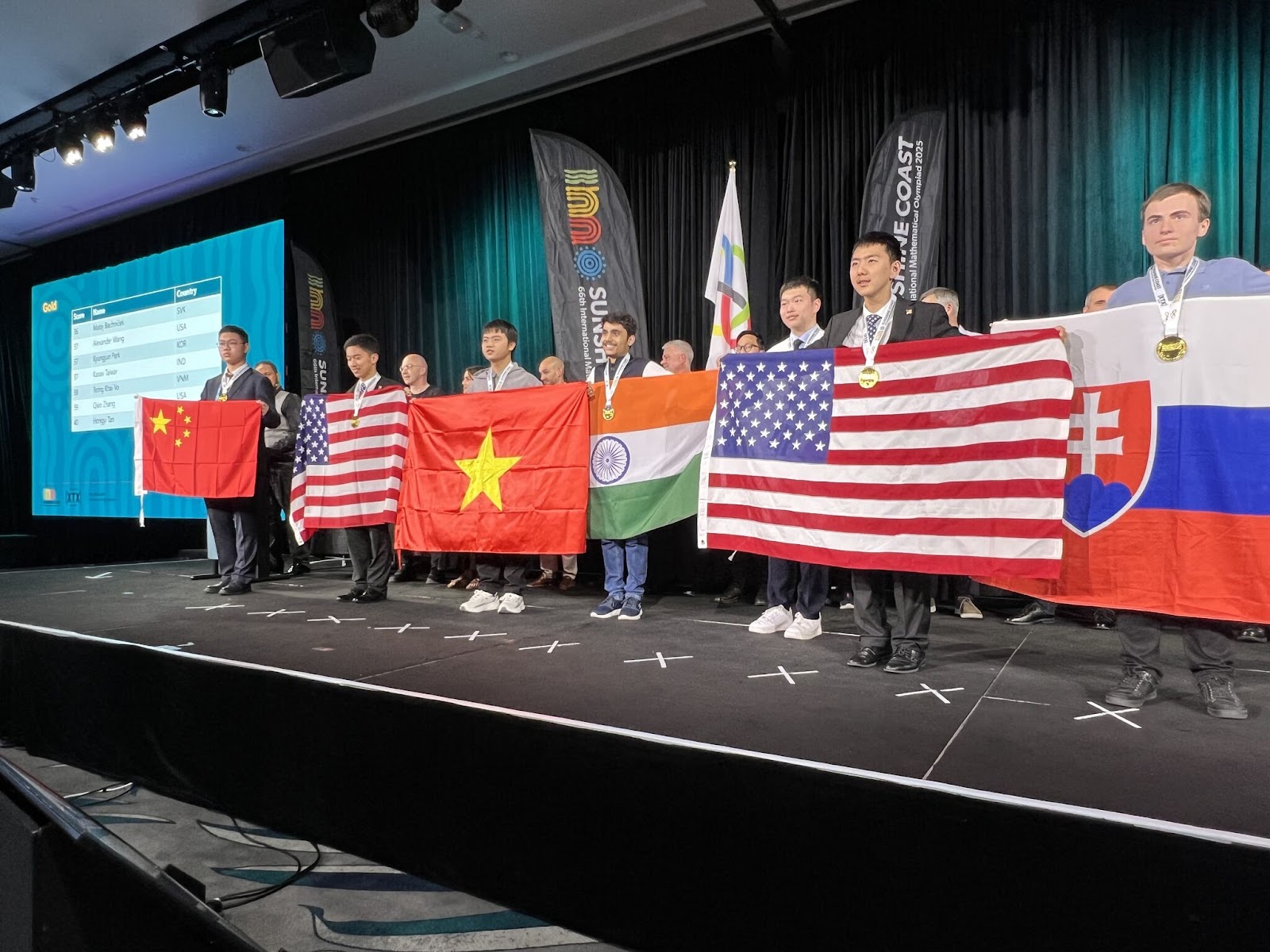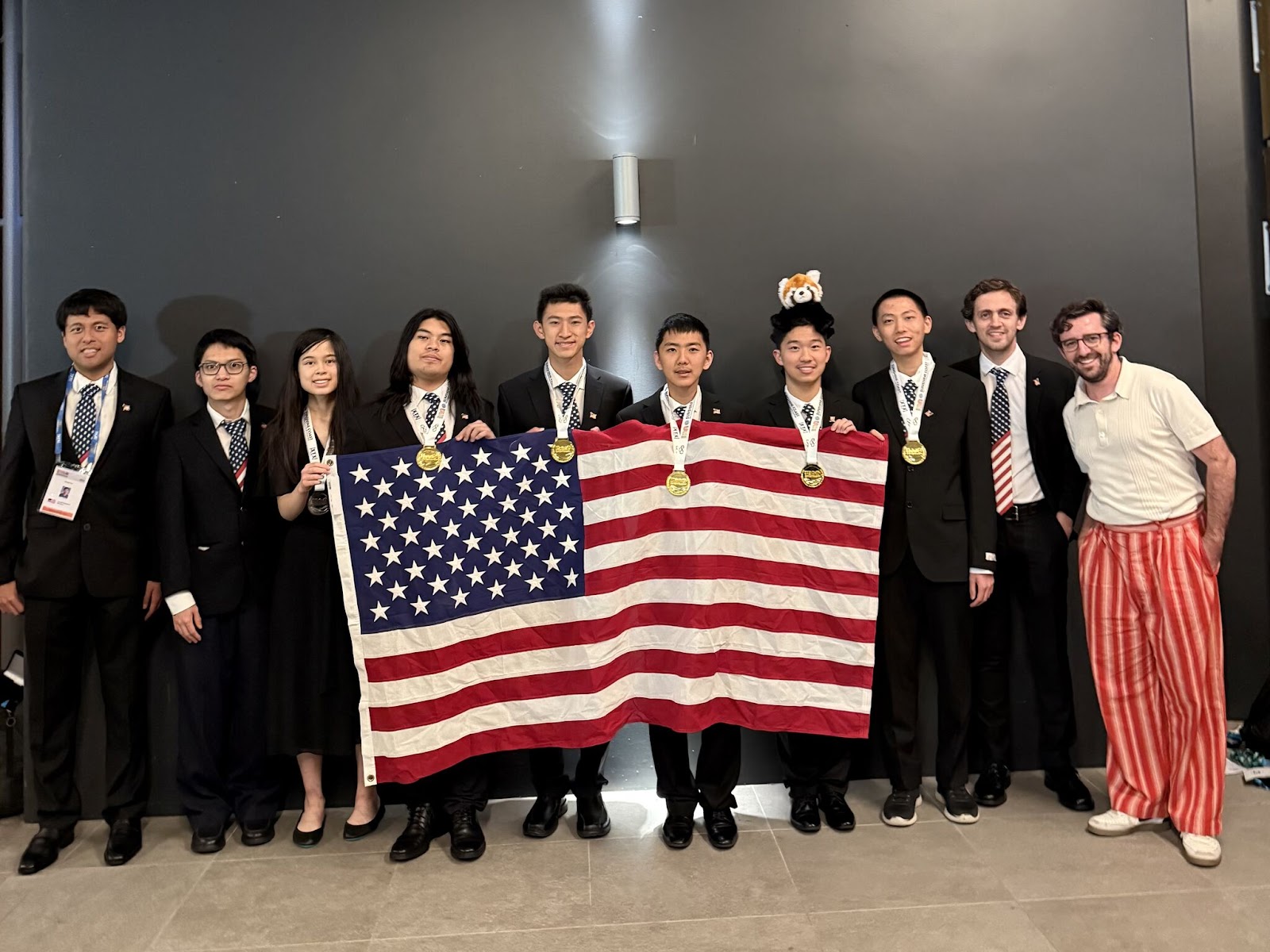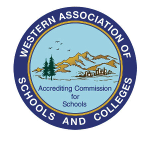Last month, I had the opportunity to meet the top math students in the world at the International Math Olympiad (IMO) in Australia. Before I arrived, I was excited for the competition – Who would win gold? Could the US repeat as champions? Would there be a perfect score?
Upon arrival, I quickly realized that the IMO is about something much more profound: community.

What I witnessed wasn't just a math competition – it was a global reunion. Many of these Math Olympiad students had first met years earlier on AoPS message boards, forums, and WOOT (our online Olympiad training). As eight-, nine-, and ten-year-olds, they had formed connections with students from the other side of the world, and the IMO offered a long-awaited chance to meet in person. I watched as these brilliant young mathematicians cheered each other on, eagerly debriefed the exam questions, and commiserated over their struggles. After two grueling days of competition, they spent the rest of the week on outings getting to know the host country — and each other — better. The IMO was both a competition AND a community celebration.
Why This Felt Like Coming Home
Watching the IMO unfold, I could see many parallels to our approach at Art of Problem Solving. Instead of isolating students with 1-on-1 tutoring, we believe that learning with talented, engaged peers brings out the best in each of our students. Whether at one of our in-person campuses or online, AoPS courses are designed with community and collaboration in mind. For many, AoPS is the place where they find their tribe – other kids who love an interesting challenge.
This community focus isn't accidental. It mirrors what Coach Po-Shen Loh discovered when he made the controversial decision to invite international competitors to train alongside the US team, paying all their expenses with no strings attached. His philosophy was simple: "Instead of sending six people to the IMO, we bring the IMO to 60 people." The results? Four first-place rankings in six years, proving that prioritizing community over competition actually produces better stronger results.
This approach becomes especially important as students move from childhood to adolescence, where focus shifts from pleasing adults to pleasing peers. Just last week, I spoke with an AoPS mom who shared that her son's AoPS Algebra group had been together since Beast Academy Level 3, despite the fact that they all attended different schools. The students and their parents had grown close through a shared love of mathematics.
We know that the leading mathematicians, scientists, and technologists in the world thrive because of communities of practice, and so we are building that collaborative muscle early for our students. Research backs this up: a comprehensive meta-analysis of 225 studies by Freeman and colleagues found that students in classes with active, collaborative learning methods improved their exam scores on average by about 6%, while students in traditional lecture-based classes were 1.5 times more likely to fail.
More Than Just Classrooms
We believe in collaborative problem-solving where groups of students work together on particularly challenging problems, with successful groups presenting their solutions to the class. Whether in our summer Math Beasts camps with their collaborative, hands-on learning environment or our year-round classes, students build mathematical confidence while improving their ability to work with peers who share their passion for problem solving.
At AoPS, we've designed our collaborative environments around three core principles: Active Learning where students approach unfamiliar problems directly while instructors guide with motivating questions; an Outstanding Peer Group that collaborates and challenges one another; and Effective Communication where students develop the skills to express advanced ideas clearly with peers and instructors. All our courses, math, language arts, and science, create a supportive environment of kind collaboration where students are encouraged to be curious and take intellectual risks.
The Proof Is in the Results

While many AoPS students may not reach the International Math Olympiad, we know that our vibrant and thriving math community will help them reach their full potential. And for those who do make it to the IMO? The results speak for themselves. This year alone, Art of Problem Solving students from around the globe racked up over 100 total medals in the world's top high school math competition, including 25 gold medals in ‘25!
"As a parent, I'm deeply grateful to AoPS. Tiger has taken very few math courses outside of AoPS, except for a local Math Circle that doesn't focus on Olympiad math. AoPS has been one of the most important resources in his journey. Without AoPS, Tiger wouldn't be where he is today — especially considering he's grown up in a family with no STEM background at all." — Doreen Dai, parent of IMO US 2025 Team Member Tiger Zhang
The relationships they build, the collaborative problem-solving skills they develop, and the joy they find in mathematical discovery, these are the outcomes that matter most.
The IMO reminded me why we've always put community first at AoPS. In a world that often prioritizes individual achievement over collective growth, we've chosen a different path. We've built a place where brilliant young minds can find each other, challenge each other, and grow together.
Our community-first philosophy doesn't just feel right – it works. When students feel supported by peers who share their passion, when they can take intellectual risks in a safe environment, when they know they're part of something bigger than themselves, that's when the real magic happens.
That's when they don't just learn math, they fall in love with it.
Ben Kornell is the CEO of Art of Problem Solving, where he leads a community of students, parents, and educators passionate about challenging mathematics. Under his leadership, AoPS continues to expand its mission to discover, inspire, and train the great problem solvers of the next generation.
Sources:
- Carnegie Mellon University News: "Po-Shen Loh: An International Man of Math" (2024)
- Freeman, S. et al.: "Active Learning Increases Student Performance in Science, Engineering, and Mathematics," PNAS (2014)
- NPR: "They're No. 1: U.S. Wins Math Olympiad For First Time In 21 Years" (2015)
- Quanta Magazine: "The Coach Who Led the U.S. Math Team Back to the Top" (2021)











